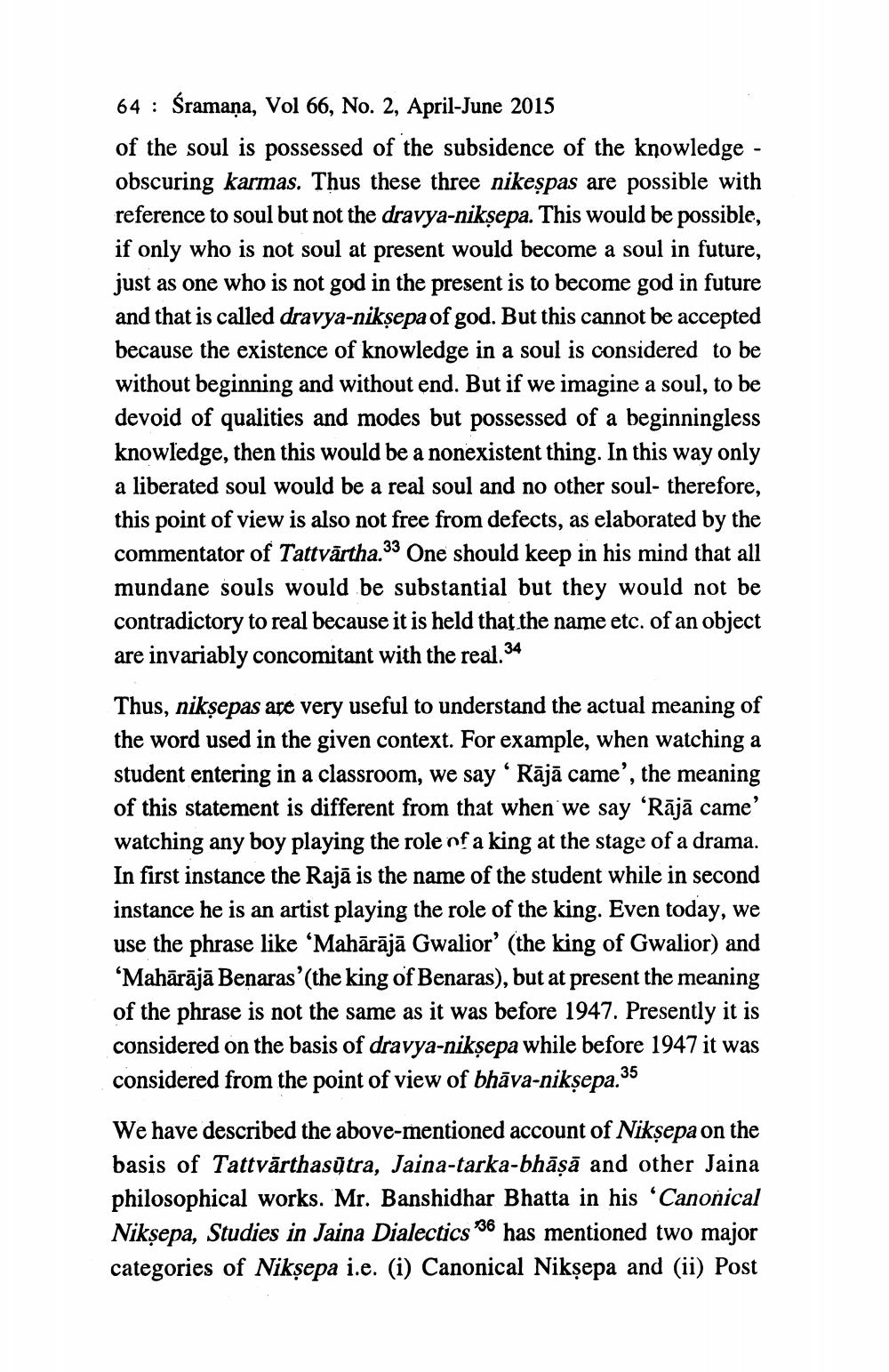________________
64 : Śramaņa, Vol 66, No. 2, April-June 2015 of the soul is possessed of the subsidence of the knowledge - obscuring karmas. Thus these three nikeșpas are possible with reference to soul but not the dravya-niksepa. This would be possible, if only who is not soul at present would become a soul in future, just as one who is not god in the present is to become god in future and that is called dravya-niksepa of god. But this cannot be accepted because the existence of knowledge in a soul is considered to be without beginning and without end. But if we imagine a soul, to be devoid of qualities and modes but possessed of a beginningless knowledge, then this would be a nonexistent thing. In this way only a liberated soul would be a real soul and no other soul- therefore, this point of view is also not free from defects, as elaborated by the commentator of Tattvārtha.33 One should keep in his mind that all mundane souls would be substantial but they would not be contradictory to real because it is held that the name etc. of an object are invariably concomitant with the real. 34
Thus, nikṣepas are very useful to understand the actual meaning of the word used in the given context. For example, when watching a student entering in a classroom, we say “Rājā came', the meaning of this statement is different from that when we say “Rājā came' watching any boy playing the role of a king at the stage of a drama. In first instance the Rajā is the name of the student while in second instance he is an artist playing the role of the king. Even today, we use the phrase like ‘Mahārājā Gwalior' (the king of Gwalior) and ‘Mahārājā Benaras'(the king of Benaras), but at present the meaning of the phrase is not the same as it was before 1947. Presently it is considered on the basis of dravya-nikṣepa while before 1947 it was considered from the point of view of bhāva-nikṣepa.35 We have described the above-mentioned account of Niksepa on the basis of Tattvārthasūtra, Jaina-tarka-bhāṣā and other Jaina philosophical works. Mr. Banshidhar Bhatta in his 'Canonical Niksepa, Studies in Jaina Dialectics 36 has mentioned two major categories of Nikṣepa i.e. (i) Canonical Nikṣepa and (ii) Post




